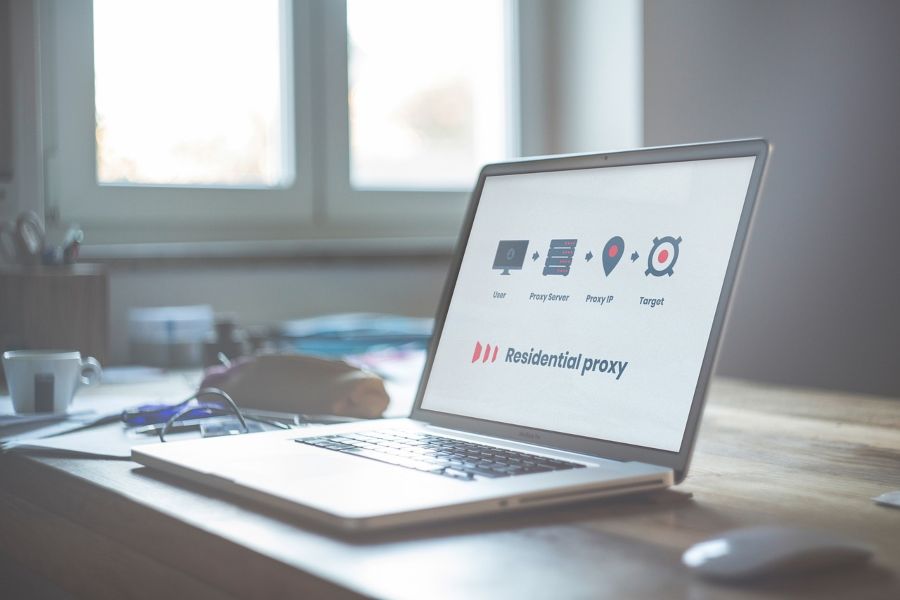Big data and data analytics have been trendy buzzwords for over a decade. Data is becoming new gold in an increasingly digitalized world, and statistics support these claims. The global Big Data market is worth over $275 billion. Because everything is going digital, there is continuous data growth available. If we know that businesses compete in the digital global arena, the valuable insights from acquiring data can be the difference between thriving and stale business models.
One of the affordable and quick ways to get information is with the help of web scraping.
Behind The Web-Scraping Curtain
Web scraping is collecting data from websites using automation tools and software. There are dozens of quality solutions for web scraping, but you should also consider possible obstacles like vast amounts of uncategorized data. Another potential issue is the web scraping process, as the intensity of crawling through a destination server might alarm the host, and you can get banned.
The benefits of collecting giant data sets quickly open up a variety of opportunities for your business. Before we dive into valuable market insights, let’s deal with the elephant in the room – how to effectively scrape competitors’ websites without being noticed.
Proxy Servers To The Rescue
Experienced marketers use proxy servers and web scraping tools to avoid detection from host servers. If a well-protected website sees an unusual amount of traffic coming from a single IP address, it might ban or restrict the traffic from that address.
Proxy servers can alter and hide your IP address. When you send a request from your device, it communicates with the destination server, and you will get the response data package back. If you use a proxy server, you send data to proxies and reroute it through alternative IPs so that the destination server thinks it communicates with the IP provided by the proxy.
Common Proxy Types
The most affordable proxy types are datacenter proxies. They are also the fastest because they rely on data center infrastructure. IP addresses from datacenter proxies are not connected to actual ISPs, so they don’t offer the level of authenticity required for extensive web scraping tasks. Datacenter proxies will hide your IP; you can use them for unprotected websites or smaller scraping tasks.
Residential proxies are much more genuine as they rely on IP addresses from real users connected to Internet Service Providers. However, even the most authentic IP, if overused, can raise suspicion. That is why some proxy providers offer rotating proxies, where you get new IP addresses to avoid rate limiting and IP blocks. You can get rotating proxy services from data centers, residential, and even mobile proxy servers. If you’re looking for rotating proxy providers, Proxyway assembled a list of the best available solutions.
Residential proxies cost more than datacenter counterparts because genuine IPs and mobile proxy servers have even higher prices, as they offer IP addresses from mobile users.
How To Utilize Web Scraping
Once you find a rotating proxy and team it up with a web scraping tool, it’s time to see how to use it to your advantage. Retail business and e-commerce are among the most competitive industries and avid scrapers.
You can use competitor analysis to monitor prices and stay on top of the competition. Market insights are another valuable thing you can extrapolate from scraping competitors’ websites. When you scan and extract data from e-commerce competitors, you can better understand where the market is heading.
Some of the web scraping use cases might be in a grey area. You can use this technique to collect information on potential leads from competitors potentially. Lead generation is a highly challenging part of the sales funnel; quality leads are valuable commodities.
Social media hugely impacts businesses, and people’s sentiments can reveal much about your brand’s impact and direction. Web scraping social media platforms can reveal essential insights into how the public responds to your brand or company’s actions.
Media companies can also use scraping methods to filter news websites and other outlets and find valuable content for their publications.
Market analysis is among the most frequently used cases for web scraping. Aside from analyzing e-commerce websites, you can apply this workflow to the real estate industry to get insight and a better overview of property prices and trends.
Because complex Big Data analysis is out of reach for many businesses, they use web scraping as a viable alternative. It is a quick process and much more affordable. You can scale your web scraping efforts and get real-time information.
The most significant benefit, if used correctly, is getting insights that lead to market advantage and can improve your company’s decision-making.
Conclusion
In a world starving for data and quality analysis, web scraping is the cost-effective alternative to Big Data business models. If you can get quality tools that categorize and make extrapolated data readable, scraping can provide valuable insights to marketers, companies, e-commerce, real estate, and other businesses.
Proxy servers are crucial to scraping technology, as they hide and rotate IP addresses and prevent targeted websites from blocking your address. By utilizing rotating proxies, businesses can glean insights from e-commerce competitors, monitor market trends, enhance lead generation, gauge public sentiment on social media, and even curate valuable content for media outlets.

























Leave a Reply